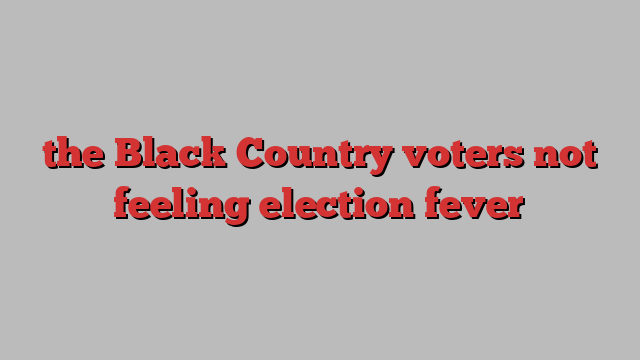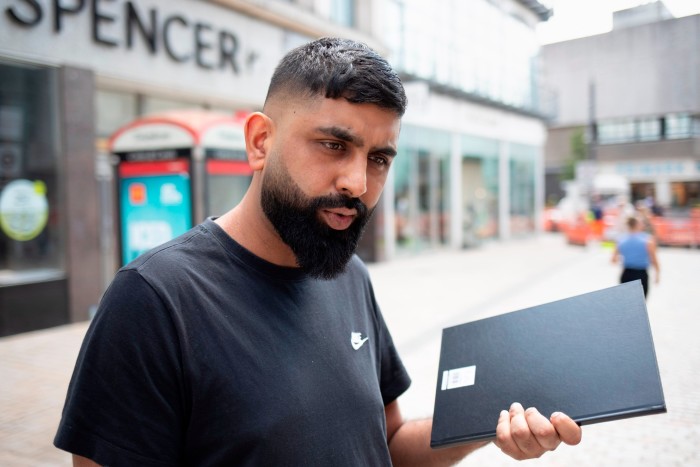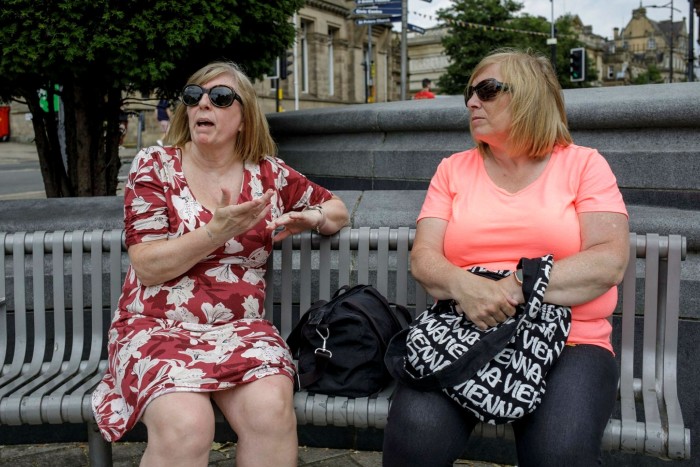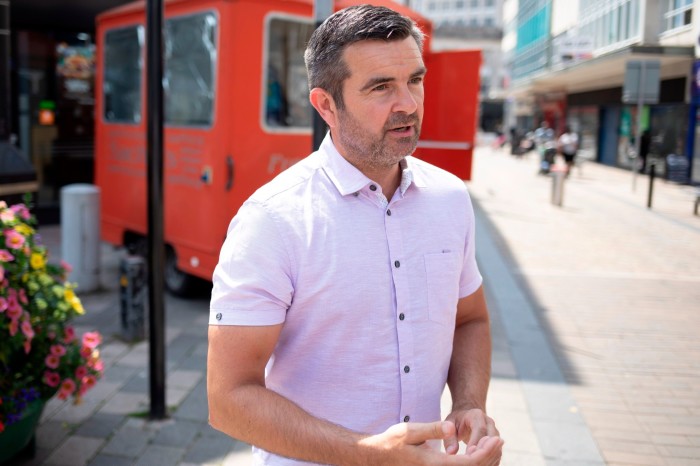
An intensive care nurse out shopping with her teenage daughter in Wolverhampton this month offered a caustic view of the choice facing British voters on Thursday.
“It’s like trying to pick which kind of STD [sexually transmitted disease] you want,” said Louise, who declined to give her surname, reflecting with Black Country humour the profound disenchantment gripping her West Midlands city in the run-up to the general election.
Wolverhampton, which has fallen far since its industrial heyday, has a severe case of a malaise that has spread widely across the UK — and could in some places affect turnout and outcomes in unpredictable ways.
Across a range of measures, public confidence in the way the country is governed has hit record lows, according to the latest annual British social attitudes survey published this month by the National Centre for Social Research.
About 45 per cent of people said they would “almost never” trust administrations of any colour to put the national interest before political party needs, the highest share since the question was first asked in 1986.
“There is good reason for the public to feel more embittered and resentful than before,” said Matt Cole, a politics lecturer at the University of Birmingham, pointing to scandals in Westminster, the cost of living crisis and the rapid turnover of prime ministers since the last election in 2019.
But it is not just the Conservatives, in power for 14 years and consistently trailing Labour by 20 points in opinion polls ahead of July 4, in the frame. Politicians of all stripes tend be tarred with the same brush.
“None of them give us any confidence. None of them are giving us something to believe in, so that you can say, ‘If you stick with it, things will be better in five years’,” said Pav Shokar, a 29-year-old maintenance engineer who was unsure whether he would cast a ballot.

His normally Labour-supporting girlfriend, a nurse, felt the same, he said. So did many residents interviewed.
Part of what is driving this political disengagement in places such as Wolverhampton, which voted by 63 per cent to leave the EU in 2016, is fallout from Brexit.
Sir John Curtice, professor of politics at Strathclyde university and a contributor to the social attitudes survey for more than 30 years, said there had been a surge in trust in government among Leave voters when former prime minister Boris Johnson delivered on his 2019 campaign pledge to “get Brexit done”.
But that confidence had reversed sharply among the same demographic, Curtice said, as long-anticipated promises including lower immigration have failed to materialise. For all the tough talk from Prime Minister Rishi Sunak’s government, both legal and irregular migration to the UK have been running near record highs.
According to the social attitudes survey, 48 per cent of people who voted to leave the EU now say they almost never trust governments, and 60 per cent said they almost never trust politicians.
Scandals, ranging from parties in Johnson’s Downing Street during Covid-19 lockdowns to the Gambling Commission’s probe into election betting based on insider knowledge by political party candidates, have compounded public mistrust.

“If you’re in the public eye you should know how to behave. You should be leading by example,” said Gillian, an office manager and habitual Conservative voter on her lunch break in central Wolverhampton.
Like her sister Karen, a sales manager, she said she was so disillusioned with the government’s record on law and order and immigration, she would be plumping for Nigel Farage’s populist Reform party this time.
Explaining her own loss of faith, Louise, who qualified as a nurse just before the pandemic, said she thought the NHS was now “too far gone” to be fixed and said people like her struggled to get by on their salaries in a world of predatory landlords and soaring rents.
Her greatest anger was reserved for the Tories, under whom “things have just got worse and worse”. But she said Labour had also failed places such as Wolverhampton in the past, and that neither of the main parties deserved her vote.
“It’s probably the worst election I have ever experienced,” said Richard, a 49-year-old financial consultant and longtime Tory voter who was also considering abstaining. He decried the “incompetence” of Sunak’s government but said none of the contenders for Downing Street had been truthful about the state of the public finances.
“I wouldn’t mind paying more taxes. I just want them to be honest about it and what they’re going to use them for,” he said.

For politicians, the immediate concern is how such apathy could affect election day, with some pollsters including Curtice suggesting turnout could be low. Wolverhampton’s three constituencies are all swing seats, and two recorded some of the lowest turnouts in the country in 2019.
Pat McFadden, Labour’s national campaign co-ordinator and the MP for Wolverhampton South East, said that although his party had sustained a big lead in opinion polls, many constituencies were still too close to call.
“With a relatively low turnout all it would take in some seats is a few hundred votes,” he said.
McFadden added that while deindustrialisation, one long-term cause of the malaise, had cast a long shadow over Wolverhampton, he was hopeful for its future.
Restoring confidence in government would first be about “getting basics right”, he said, “like getting a GP appointment, having a decent town centre and the police turning up when a crime has been committed”.
In the north-east of the city, Jane Stephenson, the Conservative candidate who is on the right of the party, is facing a different fight. First elected in 2019, she is defending a majority of 4,000 that is at risk from Labour on the left and Reform on the right.
Stephenson said it was understandable that people were disillusioned given how tough times had been but said that inflation and taxes had been coming down. “Five years of Labour will undo a lot of things those Reform voters want,” she said.

